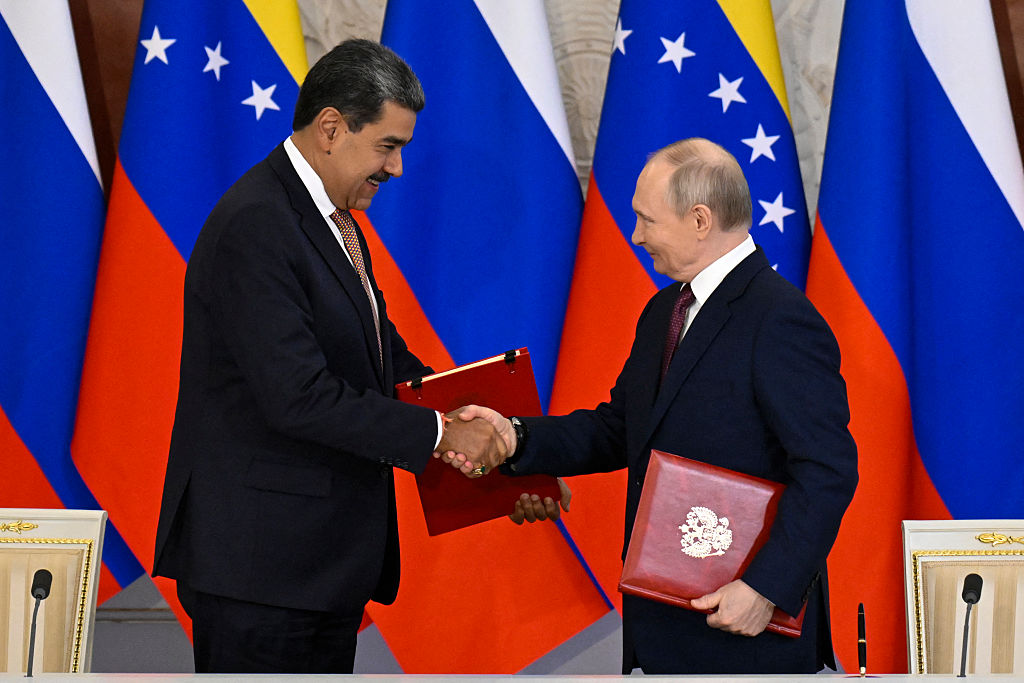The second Trump administration tends to characterize those who have illegally crossed the southern US border as drug dealers, criminals and rapists. That is, of course, exaggeration, but it is no more a fiction than is the alternative belief, common among liberals, that all migrants are desperate people fleeing for their lives, who cannot possibly be expected to live in their home countries and are utterly dependent on making it to America in order to survive.
If that were true, illegal migration would be little to worry about and good for the soul – and indeed the economic well-being – of America. If illegal migrants’ lives seem a little messy now, and it is expensive to look after them, in time they will all settle down to become good citizens who boost the economy and make us all happier and more diverse.
The folly of this belief has been exposed by the revelation that Mexican criminal gangs have been offering bounties for the heads of Immigration and Customs Enforcement (ICE) officers. Kill an ICE officer in Chicago, apparently, and you will be due a reward of $10,000. Kidnap one and it is $2,000. This follows last month’s shooting at an ICE facility in Dallas, in which two detainees were killed by a gunman who had scrawled “anti-ICE” on his ammunition.
Why the desperation to be rid of ICE officials? Because they have succeeded in disrupting illegal activities. It is no longer so easy for the cartels to bring personnel, drugs and weapons across the border. Criminal business models which relied upon easy transit between Mexico and the US are no longer viable.
The gangs are not Dickensian petty criminals, they are highly complex, organized and lethal fighting forces
Liberals used to like to say that it was unfeasible to close the border. It stretched too far. There wasn’t enough concrete in America to build the wall which Donald Trump proposed. People would just come in another way. Trump did not prove them wrong in his first term, but he has in his second. He has done so by designating large areas close to the border as military zones, which can then legitimately be defended by soldiers and military vehicles rather than just customs officials. Trump has been called a fascist for deploying the military in civilian situations. Crime had been falling in Washington, it is argued, so why the need to send in the National Guard? This month, the President has been the target of similar condemnation when the Department for Homeland Security sent 300 National Guard troops to Illinois. No sooner had they arrived than a district judge, in a case brought by state and city authorities, placed a temporary injunction on their deployment.
Of course, the National Guard is being deployed to tackle not just illegal-migrant and international-gang activity but inner-city crime more broadly. Yet the depth and breadth of the cartels’ depravity is hard to exaggerate, as Katarina Szulc’s feature on baby-smuggling shows.
When you have criminal gangs trafficking infants and offering bounties to contract killers to eliminate state officials, what are you supposed to do? The gangs operating in Chicago and many other cities are not Dickensian petty criminals. They are highly complex, organized and lethal fighting forces.
Parts of America have ended up in the hands of gangs because their criminal activities have been tolerated for far too long. A rose-tinted view of migration failed to take into account that among the many plain economic migrants who have been crossing the US border illegally are criminals and terrorists who are capable of seriously undermining honest Americans’ quality of life.
It is not just the US that has been naive about this. Sweden was once one of the world’s most peaceful nations, yet a soft migration policy which was practiced for several years failed to ask who was gaining entry. The result has been a surge of violence using grenades and other weapons which appear to have been sourced from the leftovers of the Balkans wars, three decades ago.
Germany, Britain, France – all have suffered crime waves involving illegal migrants whose stories about seeking sanctuary from persecution were too easily swallowed. Importing people from violent parts of the world always brings with it the risk that they will bring some of that with them, yet the asylum policies of developed nations have largely ignored the risk, tending to place far too much trust in the arrivals.
Not everything ICE is doing is to be welcomed. There are too many tales of harmless tourists who have been speared by overzealous policing of visa rules. Cases such as that of Donna Hughes-Brown, an Irish woman detained by ICE officials in Chicago in July, do not do the department much credit. She is married to a US citizen, a military veteran, and had been living perfectly legally in the US for many years, but was taken into custody when her record revealed a minor misdemeanor involving a bad check a decade ago. It shouldn’t be too much of an effort to distinguish between a slightly wayward foreigner and a member of a vicious cartel. To subject them to similar treatment undermines otherwise necessary work in strengthening borders.
That aside, there are many signs that enhanced measures against illegal migration in the US are beginning to bear fruit. The country will not become safer overnight, of course, because there are many criminals who are already active here. But the cartels’ threats of violence against ICE officials are a sign that the policy is beginning to work. The danger now is that the cartels will succeed in terrorizing those officials and deterring them from doing their jobs, as well as recruiting new members of staff.
This article was originally published in The Spectator’s October 27, 2025 World edition.


























Leave a Reply